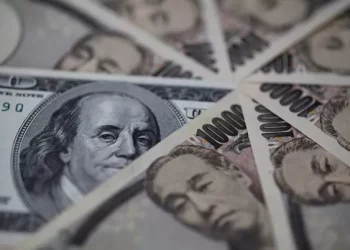In recent times, the British Pound (GBP) has been experiencing a noticeable decline in its value against other major currencies. This downward trend has raised concerns among investors, economists, and the general public alike. In this SEO-optimized article, we will delve into the reasons behind the weakening of the GBP, shedding light on various factors contributing to this phenomenon. Understanding these factors is crucial for anyone who wishes to navigate the complex world of foreign exchange markets. Let’s explore why GBP is falling and what it means for the United Kingdom and the global economy.
1. Economic Uncertainty in the Post-Brexit Era
The aftermath of the United Kingdom’s departure from the European Union, commonly known as Brexit, has been marked by economic uncertainty. This uncertainty stems from the new trade arrangements, regulatory changes, and potential disruptions to supply chains.
Businesses have had to adapt to this evolving landscape, leading to reduced investments and slower economic growth. As a result, investors have become cautious about holding GBP, leading to a decrease in demand for the currency and, subsequently, its depreciation.
Impact on Trade Relations
The alteration of trade relationships between the UK and its European neighbors has had a substantial impact on GBP’s value. The imposition of customs checks and new tariffs has made trading goods with the EU more cumbersome and expensive. Consequently, UK exports to the EU have been adversely affected, which has created a trade deficit. This deficit, in turn, has contributed to the GBP’s depreciation.
Investor Sentiment and Capital Flight
Uncertainty tends to make investors nervous. As the UK navigated the complex negotiations surrounding Brexit, many investors sought safer havens for their capital. They looked beyond GBP to currencies with greater stability. This shift in investor sentiment led to capital flight from the UK, further exerting downward pressure on the currency’s value.
2. COVID-19 Pandemic’s Economic Fallout
The COVID-19 pandemic had a profound impact on economies worldwide, and the United Kingdom was no exception. Lockdowns, business closures, and disruptions to international trade took a toll on the UK’s economic performance. To mitigate the crisis, the Bank of England implemented quantitative easing measures, which involved injecting large sums of money into the economy. While these measures were necessary to prevent a more severe economic downturn, they also increased the money supply, contributing to GBP’s devaluation.
Inflationary Pressures
The significant increase in the money supply can lead to inflationary pressures. When more money is circulating in the economy, it can erode the purchasing power of the currency. As inflation expectations rise, investors become wary of holding GBP, as its real value diminishes. This leads to a decrease in demand for the currency.
Low Interest Rates
To stimulate economic activity during the pandemic, the Bank of England lowered interest rates to historic lows. While this move encouraged borrowing and spending, it also reduced the attractiveness of GBP-denominated assets to foreign investors seeking higher yields. The resulting outflow of foreign capital added to the downward pressure on GBP’s value.
3. Political Factors and Leadership Changes
Political stability is a crucial factor in currency valuation, and the United Kingdom experienced a series of political changes that impacted investor confidence. Leadership transitions, particularly those accompanied by uncertainty or policy shifts, can have a profound impact on the currency markets.
Leadership Changes and Market Jitters
When political leaders change, it often introduces uncertainty into the economic landscape. Investors may be unsure about how new leaders will approach economic policies and international relations. The prospect of political instability can lead to decreased investor confidence, prompting them to seek alternative currencies, further contributing to GBP depreciation.
Trade Negotiations and International Relations
The UK’s negotiations with various countries outside the EU also played a role. Trade deals and international relations are significant drivers of currency value. Positive developments in these areas can boost investor confidence in a currency, while stalled negotiations or unfavorable outcomes can have the opposite effect.
In conclusion, the decline of the British Pound (GBP) is a complex issue influenced by a combination of economic, political, and global factors. The aftermath of Brexit, economic fallout from the COVID-19 pandemic, and political developments have all contributed to the currency’s depreciation. Investors and policymakers alike must closely monitor these factors to navigate the challenges posed by GBP’s declining value effectively. In the ever-evolving world of foreign exchange markets, a comprehensive understanding of these dynamics is essential for making informed decisions and mitigating risks in international financial markets.
Related Topics:
Institutional analysis: GBP/USD faces downside risks, investors focus on inflation report
GBP in Global Finance: A Comprehensive Overview
Is Pound Sterling (GBP) the Same as Euro (EUR)? A Comparative Analysis

























